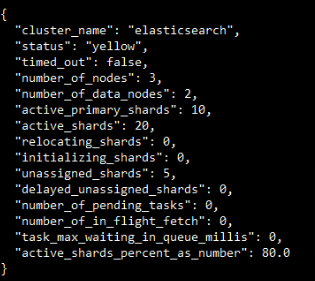
|
|
Elasticsearch offers near-real-time analytics and search for many kinds of data. No matter what kind of data you have—numerical, geographical, or structured—Elasticsearch can effectively store and index it to enable quick searches. What is Elasticsearch?Elasticsearch is written in Java and is dual-licensed under the (source-available) Server Side Public License and the Elastic license, with some components falling under the proprietary (source-available) Elastic License. Official clients are available for Java,.NET (C#), PHP, Python, Ruby, and other languages. According to the DB-Engines rankings, Elasticsearch is the most popular enterprise search engine. Types of Elasticsearch Problems
Troubleshooting Common Problems of ElasticsearchDocker Connection RefusedThe DXP container recognizes the Elasticsearch IP to establish a connection and add ‘/etc/hosts/‘ entries that map the Elasticsearch container name to the Elasticsearch server host IP address during the docker run phase by passing an argument like this: --add-host elasticsearch:[IP address]
Output:  Output Disable Elasticsearch Deprecation LoggingSometimes the Elasticsearch APIs used in Liferay’s Elasticsearch connections are deprecated. Even if there is no impact on the functionality required by Liferay, warning log entries may result: docker run --add-host elasticsearch:192.168.0.00 my_image
Output:  Output Cluster Health is Yellow or RedNot all main and replica shards have been assigned, as indicated by the cluster health state of yellow or red. Causes include:
Check cluster health and shards: curl -X GET "localhost:9300/_cluster/health?pretty" Output:  Output Slow Query PerformanceResults from queries are returned slowly and take longer than anticipated. You must examine and improve the sluggish inquiries. Enable slow query logging: # Enable slow query logging Output: Output Index Creation ErrorWhen attempting to build a new index, an error occurs. This can happen due to:
Create an index with settings: # Create an index with settings Output:  Output Best Practices for Troubleshooting Common Elasticsearch ProblemsMonitor Cluster Health
Log Management
Profile and Optimize Queries
Manage Shards and Replicas
Tune JVM Settings
ConclusionIn this article, we covered common Elasticsearch problems, from cluster health issues to slow query performance and indexing errors. Elasticsearch is a powerful but complex tool, and its complexity increases when managing multiple instances in a cluster. Proper troubleshooting and optimization are crucial for maintaining a healthy Elasticsearch environment. By addressing these common issues, you can ensure efficient and reliable search and analytics capabilities for your data. |
Reffered: https://www.geeksforgeeks.org
| Databases |
Type: | Geek |
Category: | Coding |
Sub Category: | Tutorial |
Uploaded by: | Admin |
Views: | 15 |